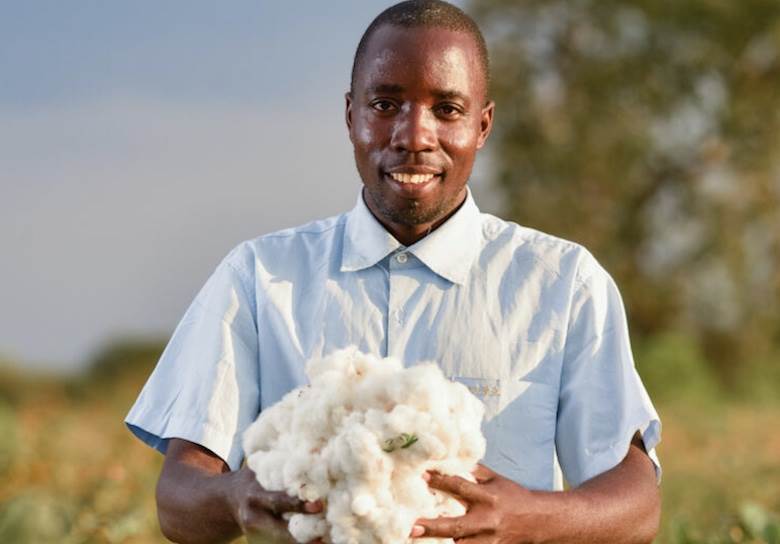Asian exclusive for Cotton made in Africa

South Korean lifestyle brand Jaju has reportedly secured an exclusive supply of Cotton made in Africa (CmiA), effectively becoming the fibre’s sole Asian licensee.
Reports from within the country said that Jaju, owned by Shinsegae International, currently plans to replace more than 70% of its lines with “sustainable” products by 2025 through gradually increasing its use of more environmentally friendly, recycled and deadstock fabrics. Jaju’s parent company first showed interest in CmiA-verfied cotton last October.
Obtaining a licence to sell CmiA cotton on a more long-term basis, as opposed to assembling a one-off capsule, was described as an important first step in this more socially and environmentally responsible direction. Initially, around 30 Jaju-branded articles will be tagged as CmiA fibre, with this number increasing to a total of 100 products by the spring.
A spokesperson from Shinsegae International stated that as more of its customers begin to lean towards collections aligned with ethical and eco-conscious values, it will “continue to develop products that are sustainable while satisfying quality, design and price”.
CmiA cotton is administered by the Hamburg-based Aid by Trade Foundation. The former states on its website that it has been committed to protecting the environment while improving smallholder farmers and ginnery workers’ working and living conditions since 2005. Until the end of this year, all CmiA cotton can also be sold as Better Cotton (a sustainability standard most commonly known by its former name, the Better Cotton Initiative or BCI).
CmiA’s fibre is grown in Benin, Chad, Burkina Faso, Cameroon, Nigeria, Mozambique, Côte d’Ivoire, Zambia, Tanzania and Uganda at present, meaning that it works with approximately 30% of African cotton producers. This latest partnership with Jaju marks the first time the standard will partner with an Asian retailer, representing a significant opportunity for workers in Sub-Saharan Africa.
Read more about the African cotton opportunity in issue five of Inside Denim here.
Image: Elikana Shilinde.










